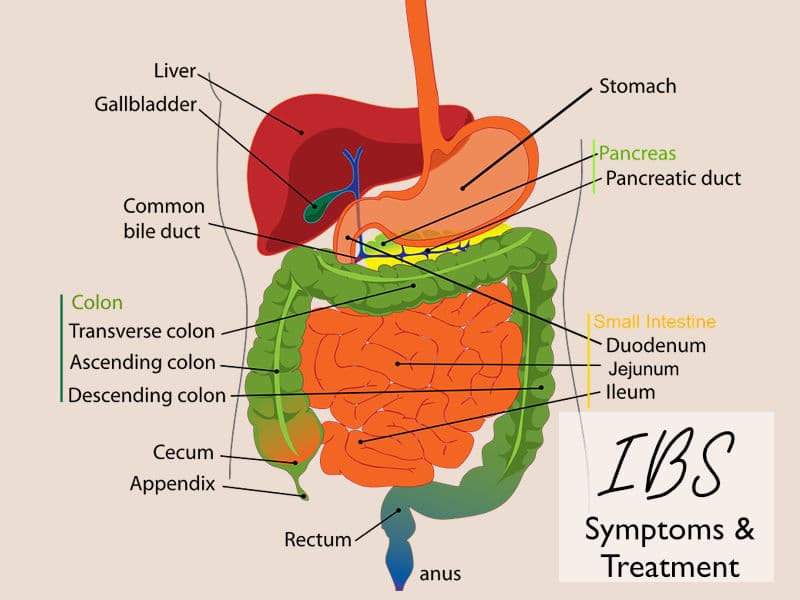Leaky gut syndrome, also known as intestinal permeability, is gaining increasing attention in the world of health and wellness. While it’s not a new concept, recent research has shed light on how a compromised gut lining can contribute to a range of health issues, from food sensitivities and inflammation to autoimmune diseases. At Nava Health, the focus on gut health reflects the belief that healing starts from within, and that the digestive system plays a central role in overall wellness.
In this comprehensive guide, we’ll explore what leaky gut syndrome is, the science behind it, and how you can heal it naturally using nutrition, supplementation, and medical-grade therapies like the Gut Health IV with L-Glutamine.
Understanding Leaky Gut Syndrome
Leaky gut syndrome refers to a condition where the lining of the small intestine becomes damaged, allowing undigested food particles, toxins, and bacteria to leak into the bloodstream. This triggers an immune response that can lead to chronic inflammation and various health symptoms.
The intestinal lining acts as a barrier, controlling what passes from the gut into the blood. When this barrier becomes “leaky,” it loses its ability to differentiate between nutrients and harmful substances.
How the Gut Barrier Works
- Tight Junctions: These are small gaps in the intestinal lining that regulate permeability. When they function properly, only nutrients and beneficial compounds pass through.
- Microbiome Balance: The gut microbiota—a collection of trillions of bacteria—helps maintain this barrier by promoting immune balance and nutrient absorption.
- Mucosal Layer: A healthy mucosal layer protects intestinal cells from pathogens and toxins.
When the gut lining is compromised, tight junctions loosen, and inflammation spreads throughout the body, disrupting multiple systems.
Common Causes of Leaky Gut
Leaky gut syndrome develops over time due to a combination of lifestyle, dietary, and environmental factors. Understanding these root causes is essential to begin healing.
1. Poor Diet
Highly processed foods, refined sugar, artificial additives, and alcohol can damage the gut lining and disrupt microbiota balance. Diets low in fiber also deprive beneficial bacteria of the nutrients they need to thrive.
2. Chronic Stress
Stress hormones such as cortisol can alter gut motility and increase intestinal permeability. Chronic stress also weakens immune function, further aggravating gut issues.
3. Medications
Long-term use of antibiotics, NSAIDs, and proton pump inhibitors can damage gut flora and thin the protective mucosal layer.
4. Infections and Toxins
Pathogens such as Candida albicans, H. pylori, or intestinal parasites, along with environmental toxins, can directly damage intestinal cells.
5. Nutrient Deficiencies
Deficiencies in zinc, vitamin D, and amino acids like glutamine can impair the regeneration of intestinal cells, slowing down healing.
Symptoms of Leaky Gut Syndrome
The symptoms of leaky gut vary widely because the condition affects multiple body systems. Common signs include:
- Chronic fatigue
- Digestive issues (bloating, diarrhea, constipation)
- Food sensitivities
- Skin problems (eczema, acne, rashes)
- Joint pain
- Autoimmune symptoms
- Brain fog and difficulty concentrating
If you experience several of these symptoms, it’s worth exploring your gut health through professional testing and evaluation.
The Connection Between Leaky Gut and Chronic Disease
Emerging research has linked leaky gut syndrome to various chronic illnesses, including autoimmune diseases, metabolic disorders, and mental health conditions.
- Autoimmune Disorders: Increased intestinal permeability may allow antigens to enter the bloodstream, triggering immune responses that attack the body’s own tissues.
- Inflammatory Diseases: Chronic inflammation resulting from leaky gut contributes to arthritis, type 2 diabetes, and cardiovascular conditions.
- Neurological Health: The gut-brain axis plays a key role in mood and cognition, meaning gut dysfunction can affect mental health and anxiety levels.
Understanding these connections emphasizes why gut health should be a foundational part of any wellness plan.
How to Heal Leaky Gut Naturally
Healing leaky gut syndrome requires a holistic approach that addresses the root causes, repairs the intestinal lining, and restores microbiome balance. Below are key strategies backed by science and integrative medicine.
1. Follow an Intestinal Permeability Diet
Diet plays a central role in healing the gut. The intestinal permeability diet focuses on anti-inflammatory, nutrient-dense foods that support gut repair.
Foods to Include:
- Bone broth, which is rich in collagen and amino acids.
- Fermented foods like kimchi, kefir, and sauerkraut for probiotics.
- Omega-3-rich foods such as salmon and chia seeds to reduce inflammation.
- Prebiotic fibers found in garlic, onions, and asparagus.
- Zinc and vitamin D-rich foods like pumpkin seeds and mushrooms.
Foods to Avoid:
- Processed sugar and refined carbohydrates.
- Gluten and dairy, which can irritate the gut lining.
- Artificial sweeteners and food dyes.
- Excessive caffeine and alcohol.
A professional Nutrition Counseling & Planning session can help tailor your diet based on your specific sensitivities and needs.
2. Use Targeted Supplementation
Certain nutrients and compounds can accelerate gut repair and balance the microbiome.
- L-Glutamine: An essential amino acid that supports intestinal cell regeneration and strengthens the gut barrier.
- Probiotics: Restore healthy gut bacteria and suppress harmful pathogens.
- Zinc Carnosine: Promotes mucosal healing and reduces inflammation.
- Digestive Enzymes: Help break down food more efficiently, reducing digestive stress.
The Gut Health IV with L-Glutamine offered by Nava Health delivers these essential nutrients directly into your bloodstream, ensuring optimal absorption and faster results.
3. Manage Stress and Improve Sleep
Stress management is essential for maintaining gut integrity. Chronic stress weakens the gut barrier, disrupts digestion, and alters microbial balance.
Effective stress management techniques include:
- Meditation and deep breathing exercises.
- Yoga or low-impact physical activity.
- Prioritizing 7–8 hours of quality sleep.
- Spending time outdoors to balance circadian rhythms.
4. Address Infections and Toxins
If underlying infections or toxin exposure are contributing factors, medical testing and detoxification protocols can be helpful. Practitioners may recommend herbal antimicrobials or chelation therapy based on results.
5. Commit to Long-Term Lifestyle Changes
Healing leaky gut is not an overnight process. It requires ongoing attention to diet, stress levels, and lifestyle habits. With professional guidance and consistency, many people experience significant improvements in digestion, energy, and immune function.
To stay consistent and supported on your healing journey, our Memberships program offers tailored wellness plans and ongoing care.
The Role of Gut Health IV Therapy
Gut Health IV Therapy is a scientifically designed infusion that delivers nutrients like L-Glutamine, vitamins, and antioxidants directly into the bloodstream. This method bypasses digestion, allowing for faster absorption and enhanced healing.
Benefits of Gut Health IV Therapy:
- Repairs the intestinal lining.
- Reduces inflammation and supports immune function.
- Replenishes nutrient deficiencies caused by malabsorption.
- Boosts energy and cognitive clarity.
By incorporating Gut Health IV therapy with a clean diet and targeted supplementation, you can accelerate the process of restoring gut balance.
When to Seek Professional Help
If your symptoms persist despite dietary changes and lifestyle adjustments, consult a qualified healthcare practitioner. Functional and integrative medicine professionals can perform specialized tests, such as:
- Intestinal permeability assays.
- Comprehensive stool analysis.
- Food sensitivity panels.
At Nava Health, practitioners use these tools to personalize treatment and track your progress, ensuring every aspect of your health is addressed.
Conclusion
Leaky gut syndrome is more than just a digestive issue; it’s a signal that your body’s barrier system needs support. By addressing the root causes, repairing the intestinal lining, and restoring microbial balance, you can achieve better digestion, immunity, and overall health.
A holistic approach combining the intestinal permeability diet, L-Glutamine supplementation, and professional therapies like Gut Health IV offers an effective path to recovery. With guidance from Nava Health, you can take control of your gut health and experience lasting transformation.
Whether you’re struggling with chronic inflammation, autoimmune symptoms, or digestive discomfort, personalized Nutrition Counseling & Planning and supportive programs can help you rebuild a stronger, healthier gut for life.
Frequently Asked Questions
1. What is the fastest way to heal a leaky gut?
Combining an anti-inflammatory diet, L-Glutamine supplementation, probiotics, and stress management can accelerate healing. Gut Health IV therapy also provides rapid nutrient support.
2. Can leaky gut cause autoimmune diseases?
Yes. Research suggests that intestinal permeability can trigger immune responses linked to autoimmune conditions like Hashimoto’s thyroiditis and rheumatoid arthritis.
3. How long does it take to heal leaky gut?
Depending on severity, healing can take from a few weeks to several months. Consistency in diet, stress reduction, and supplementation is key.
4. Is leaky gut recognized by conventional medicine?
While traditional medicine may use different terminology, increasing evidence supports the role of gut barrier dysfunction in chronic disease development.
5. Can probiotics alone heal leaky gut?
Probiotics help restore microbial balance, but complete healing also requires dietary changes, nutrient therapy, and addressing inflammation.
6. How do I know if I have leaky gut?
Common signs include bloating, food sensitivities, fatigue, and skin issues. Functional tests through clinics like Nava Health can confirm intestinal permeability.



